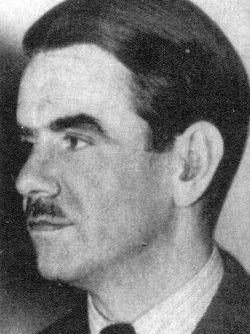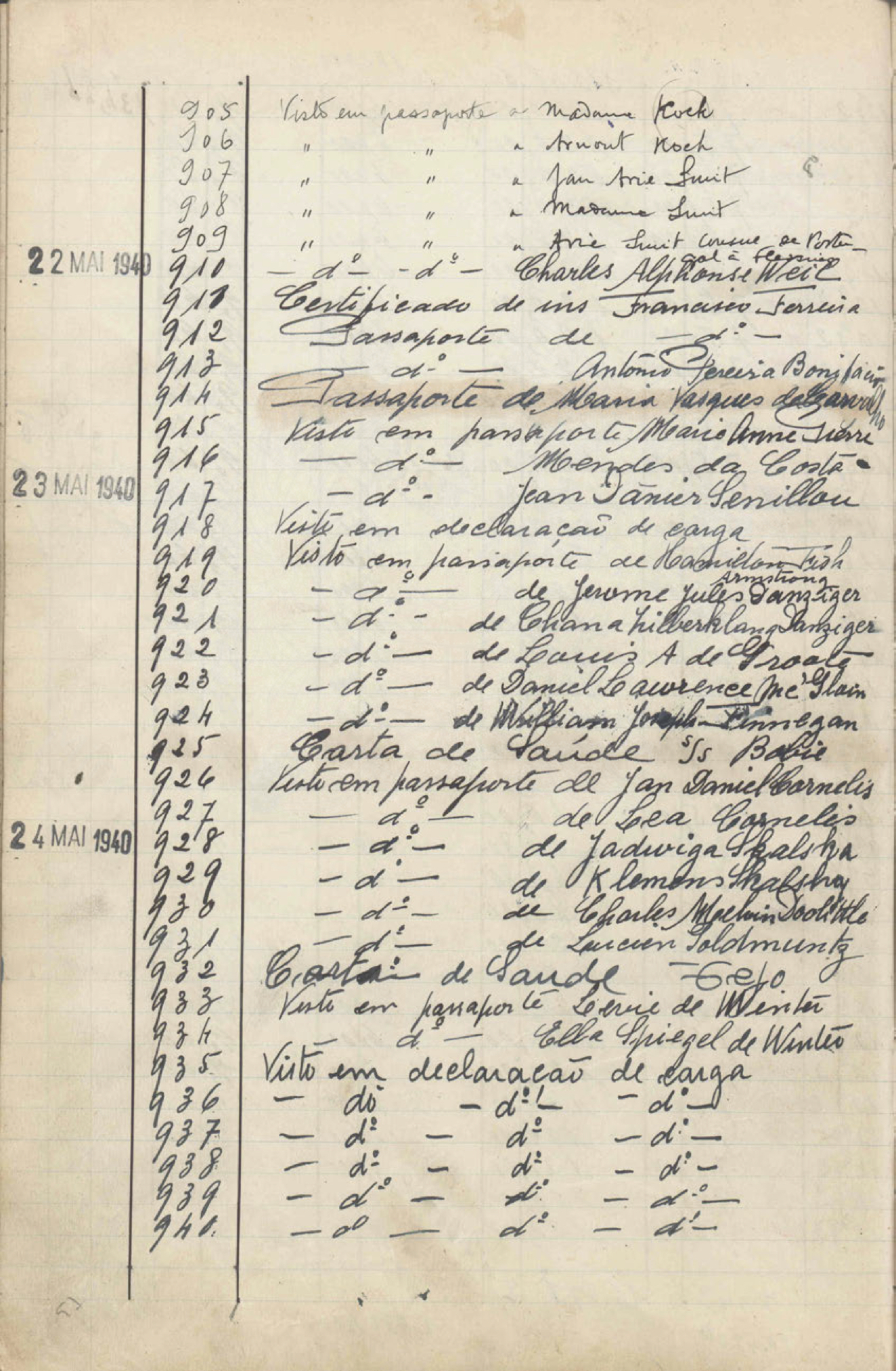Armstrong
Visa Recipient
- ARMSTRONG, Hamilton Fish P A T
Age 47 | Visa #919
About the Individual
Hamilton Fish ARMSTRONG received a visa from Aristides de Sousa Mendes in Bordeaux on May 23, 1940.
ARMSTRONG was not a refugee, but rather a US citizen and a diplomat/journalist. He was editor of the magazine Foreign Affairs from 1922 to 1972. On May 27, four days after receiving his visa from Sousa Mendes, he wrote an extended article for The New York Times describing the refugee crisis and appealing to the U.S. and British governments to help.
He sailed from Genoa to New York on the vessel Manhattan in June 1940.
- Photo
- Artifact
- Testimonials
Testimonial of Hamilton Fish Armstrong
From The New York Times, dated May 27, 1940 and published on May 28, 1940
Since this ferocious struggle began in Belgium and Flanders, civilian refugees have been flooding down across the country, making every crossroads, every village and every railway junction a station of misery. They arrive in boxcars, bundled in the straw. They come by road in every conceivable sort of vehicle.
In the Bordeaux region three days ago I saw two fire engines that had come through from Brussels. Baby carriages, a sewing machine and bundles of every shape were piled on one. Ten or fifteen persons were packed into the other, the women with children and babies on their laps, their heads covered with pieces of oilcloth to keep off the rain.
Thousands are on bicycles with everything they have in the world strapped on the handlebars. Many of them have now been on the road for twelve or fourteen days.
From Lille a woman reached Paris with a baby tied to the handlebars of a bicycle and a child of six years pedaling alongside on a tricycle.
A stunt bicyclist from a Belgian circus arrived with a family of four children disposed in various ways on his machine and on his shoulders.
Some arrive on farm horses, some afoot.... These wanderers number not fewer than five millions. That is to say, at least ten times as many refugees are now pushing down toward Southern France as pushed up from Spain a year ago. The difference is not only in numbers. The Spaniards received asylum in a country at peace and were looked after as well as possible in a sudden emergency. Many of them were sturdy young soldiers. The present refugees, ten times as numerous and largely older men and women and children, stream across a country locked in a death struggle....
Anyone who has heard first-hand accounts of the courage of these civilians under the ceaseless bombing and machine-gunning of the low-flying German planes, who has seen the stoicism of the survivors, haunted as they are by the fear that they may never see their menfolk again, must seize every means possible to tell at home how many lives there are to be saved by prompt American generosity and to vouch for the fact that never were there people more worth helping.
Testimonial of Hamilton Fish Armstrong
From Chronology of Failure: The Last Days of the French Republic, 1941
June 20, 1940. Thousands of persons whose past activities make them especially obnoxious to the present re?gimes of Germany and Italy, or who might find themselves in difficulties under a pro-Fascist régime in France, are seeking to leave the country. Many are trying to get to Spain or Portugal. The consulates of both countries are besieged for visas. Conditions on the Spanish frontier are chaotic. Among those admitted are the former Empress Zita of Austria-Hungary and her son, the Archduke Otto, also the three children of King Leopold of Belgium. Other refugees are making their way to England on cargo boats or on British warships. One ship arriving in Falmouth today from Bordeaux brings 1,300 refugees, among them prominent French politicians and publicists, as well as most of the English journalists who have been serving in France during the war.




